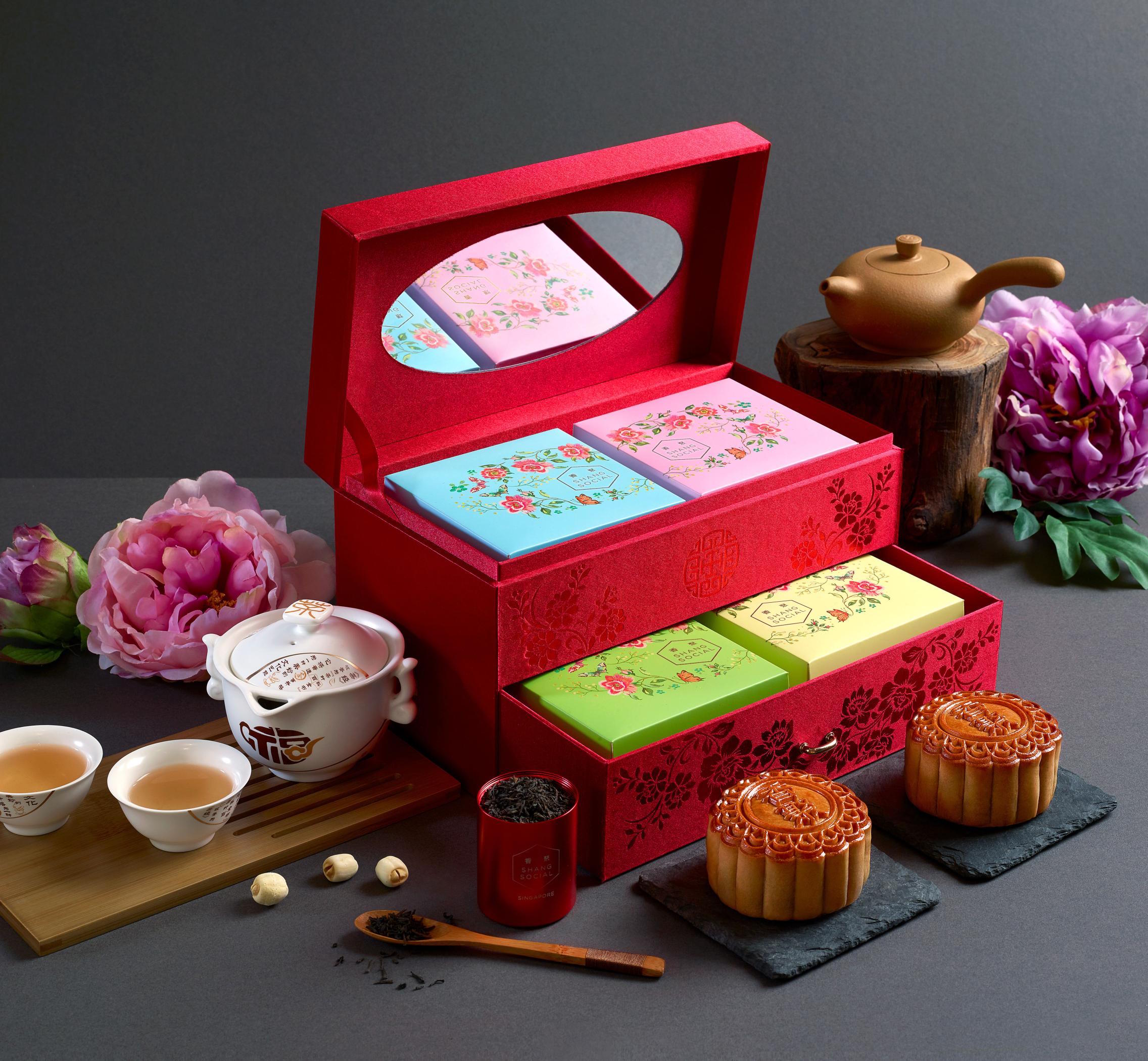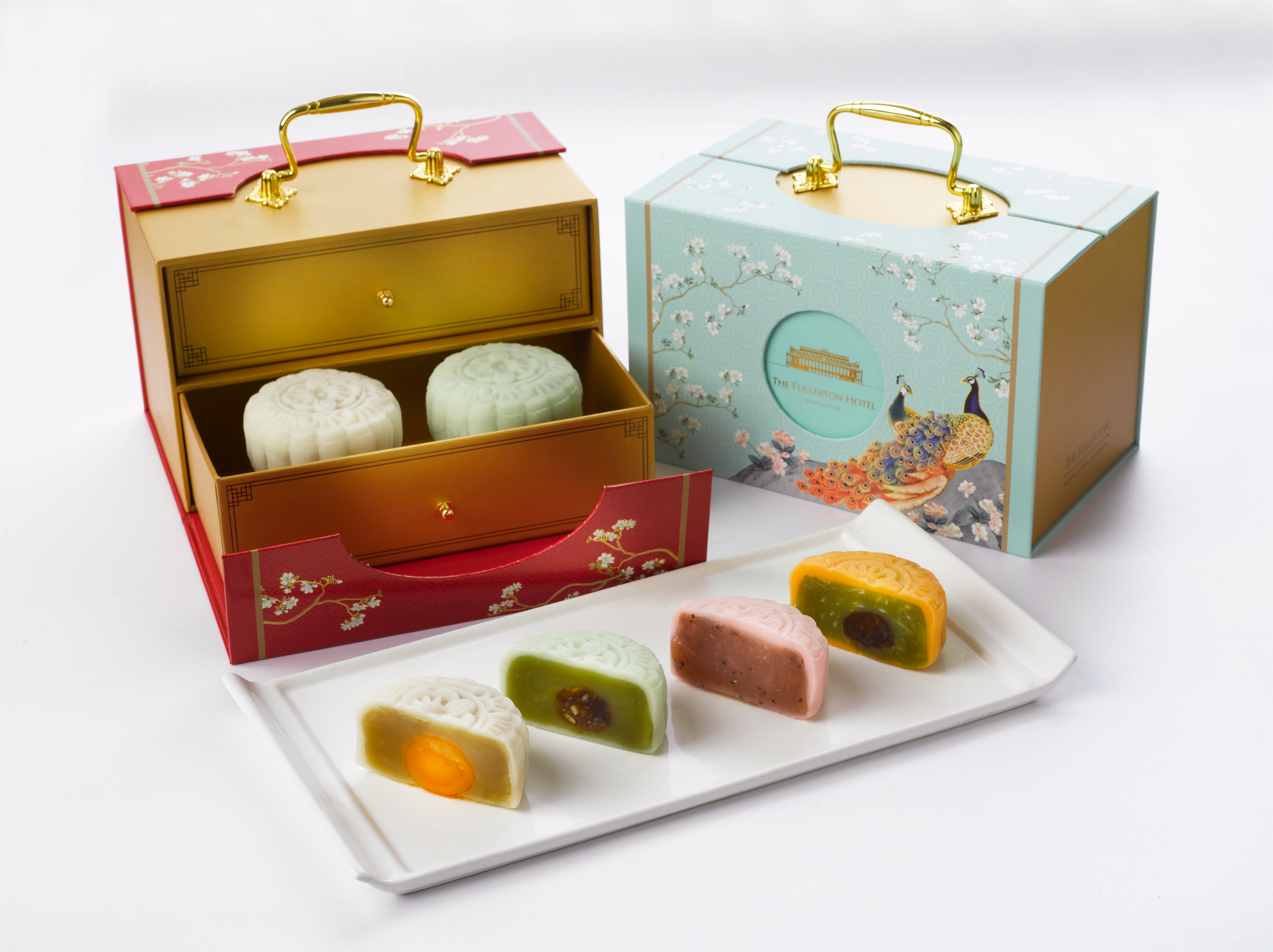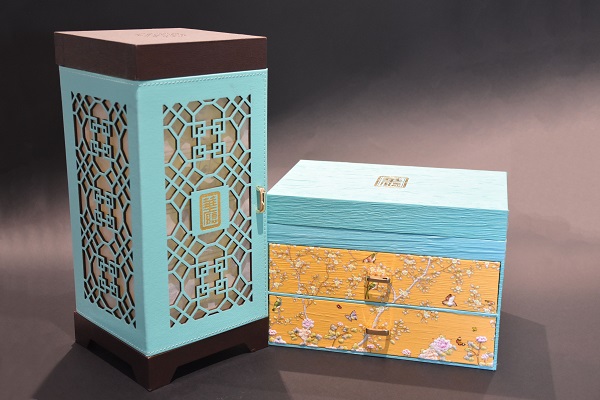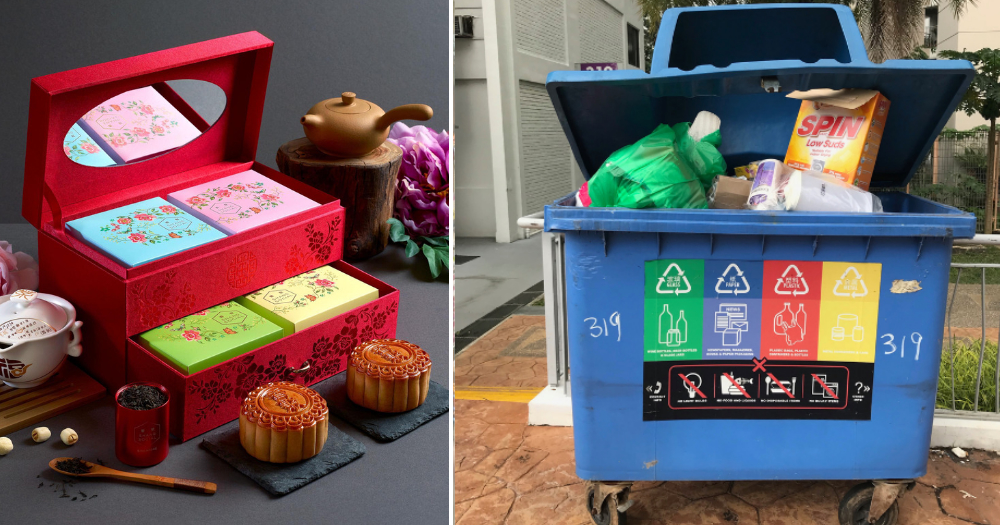Mid-Autumn Festival is nearing, and many retailers are ramping up their mooncake sales.
Mooncake retailers up their game
As competition stiffens between mooncake retailers, every year we see increasingly fancy and elaborate packagings to attract customers.
Here's an example of a box of mooncakes with an intricate design:
 Image from Shang Social
Image from Shang Social
Intricately-packed mooncakes have its appeal among traditional companies or individuals as they are perceived as a more presentable choice of festive gifts.
While there is nothing wrong in displaying courteous gesture and kind thoughts, elaborate packagings are really damaging to the environment.
Mooncake packaging is fancy but it is not the only occasion when such packagings appear in the market.
Mind you, fancy packagings are just a manifest of consumerism waste (think Valentine's Day), so spare the blame on the occasion.
And Chang'e forgives you if you read on to understand why elaborate packaging is bad.
Almost impossible to recycle
According to the Singapore Environment Council, 40 per cent of the decorative packaging mooncakes come encased in every year are reportedly "unnecessary and wasteful", CNA reported.
A spokesperson from Tay Paper Recycling, a major recycling company in Singapore that recycles up to 5,000 to 8,000 tonnes of waste paper monthly, revealed that the boxes themselves are hard to recycle as well.
This is due to the glossy varnish or waterproof wax covering most boxes, and as such, the boxes are eventually sent to the incineration plant.
Considering that individual mooncakes often come wrapped in either plastic or paper for hygiene purposes, these plastic wrappers can be contaminated, and thus might not be recycled too.
As you can see from the list of recyclables and non-recyclables compiled by the National Environment Agency, plastic packaging contaminated with food should be disposed of as general waste:

So for those who stay in HDBs, take note, because there's no point throwing the boxes in the blue recycling bins.
Reusable & recyclable mooncake packaging in the making
So what can be done instead?
One way to make full use of these elaborate boxes would be to reuse them.
Consumers who purchase mooncakes with extravagant packaging have to fork out an exorbitant price too.
Instead of letting the box goes into waste, one can repurpose elaborate boxes into jewelry or makeup boxes as per how mooncake retailers market these products too.
 Image from The Fullerton Cake Boutique
Image from The Fullerton Cake Boutique
In 2018, Orchard Hotel launched a limited edition mooncake box design which can be used as a storage box, enhanced with LED lights and Bluetooth speaker.
 Photo from Millennium Hotels.
Photo from Millennium Hotels.
On a more encouraging note, some retailers are striving to create recyclable packaging.
The Fullerton Hotel and Resorts have designed their mooncake boxes, made out of cardboard, to reportedly be "95 per cent recyclable and 100 per cent reusable".
Fullerton's general manager, Cavaliere Giovanni Viterale, added that their team is currently attempting to create fully recyclable mooncake boxes for 2020.
However, factors such as food safety, hygiene and ensuring the pastries' quality, would have to be taken into consideration as well.
Having said that, retailers should not promote environmentally-friendly packagings as a premium with marked-up pricing to penalise those who wish to chip into the efforts to reduce waste.
Onus on businesses to reduce & improve packagings
Going beyond mooncakes, fancy but environmentally-friendly packagings are generally not common in Singapore, yet.
The onus is on the retailers to step up their game to go green and put some thought behind their packaging to make it environmentally-friendly.
In Hong Kong, one mooncake retailer has heeded calls to go green by designing biodegradable boxes made from bagasse, a fibrous material derived from sugar cane. The boxes reportedly decomposed in four months, according to South China Morning Post.
In Japan, companies are spurred to explore innovative packagings since the announcement of a plastic ban.
For example, Nestlé Japan is exploring to switch its KitKat plastic packaging to origami paper, encapsulating Japanese tradition in the effort to go green.
At a recent Voices of Youth Post-National Day Rally dialogue at Anchorvale Community Club, a common sentiment shared by 100 young participants is that businesses should take a more active role to mitigate climate change.
Prime Minister Lee Hsien Loong also highlighted that a huge amount of waste that Singapore generates includes from excessive packaging.
These packagings are often disposed of and incinerated, leading to more carbon dioxide and filling up our landfill at Pulau Semakau at an unsustainable rate.
Perhaps, retailers should not only be providing reusable and recyclable packagings but also to offer an option to say no to packaging.
Give S'poreans the option to omit packagings
Not all consumers need packagings for the products they purchase.
For example, some mooncake buyers would say no to packagings if they have a choice.
Some online comments suggest that customers should be given the option to purchase the mooncakes themselves without the packaging.
Others lamented that they would rather have mooncakes encased in simple packaging and sold for lower prices.




Considering the growing green movement in Singapore, perhaps this could become a legitimate option businesses can take note of and implement, especially as Singaporeans are becoming more environmentally-conscious.
The chairman of the Waste Management & Recycling Association of Singapore, Melissa Tan told CNA:
"Besides contributing to less generation of waste, the manufacturers should let the quality of their products speak for themselves to attract customers, rather than the design of the packaging. The outward appearance of the product should be decent, but it need not be ostentatious and ultimately, wasteful."
Top photo from Shang Social and David Littrell / FB
If you like what you read, follow us on Facebook, Instagram, Twitter and Telegram to get the latest updates.
